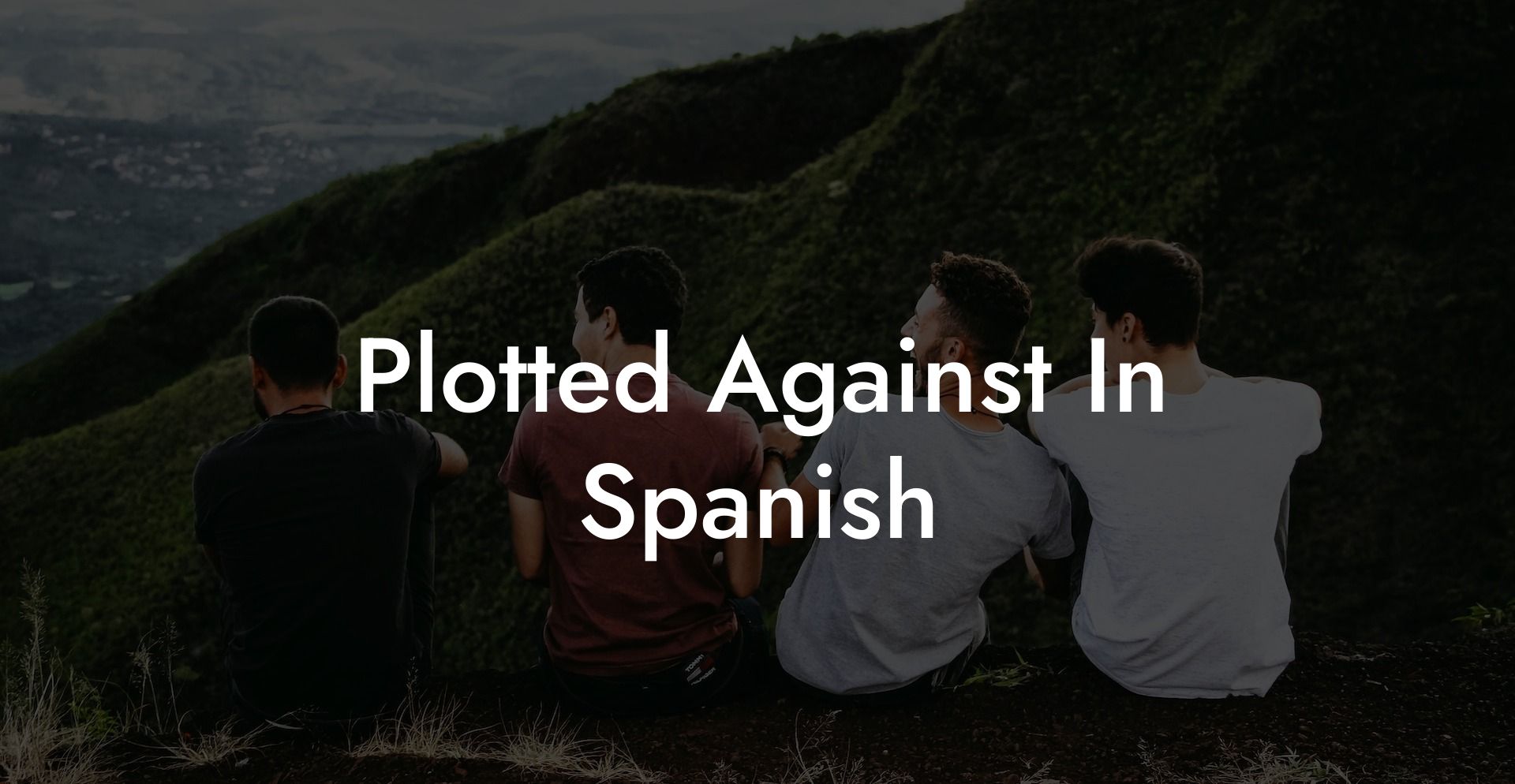Navigating the world of relationships and love can be challenging, especially when encountering alternative relationship structures such as non-monogamy, monogamy, and polyamory. But what happens when you're faced with feelings of jealousy and betrayal in these unique dynamics? Find out how to handle these emotions in this article about being plotted against in your Spanish love story.
Plotted Against In Spanish Table of Contents
Understanding Alternative Relationship Structures
Dealing with Jealousy and Betrayal in Alternative Relationship Structures
Understanding Alternative Relationship Structures
When it comes to relationships, there's no one-size-fits-all approach. Different people find happiness and fulfillment in various relationship structures, and it's essential to understand the distinctions between monogamy, non-monogamy, and polyamory.
Monogamy
This is the most traditional and widely-accepted relationship structure, where two individuals are romantically, emotionally, and sexually exclusive with each other.
Non-monogamy
Non-monogamy is an umbrella term for various relationship structures that allow for romantic, emotional, or sexual connections with more than one partner. This includes open relationships, swinging, and polyamory, among others.
Polyamory
A type of non-monogamous arrangement, polyamory allows individuals to engage in multiple romantic and emotional connections. This goes beyond purely sexual relationships as it generally involves deeper emotional connections and commitment among all parties involved.
Dealing with Jealousy and Betrayal in Alternative Relationship Structures
No relationship is perfect, and even unconventional relationship structures can encounter issues like jealousy and feelings of betrayal. Here's how to manage these emotions and maintain healthy relationships:
Communication Is Key
Maintaining open lines of communication with all parties involved is crucial in navigating the complexities of alternative relationship structures. Discuss boundaries and expectations to ensure everyone is on the same page.
Address Jealousy Head-On
Jealousy is a normal human emotion, but it's essential to confront it productively before it festers and causes issues. Identifying the root of jealousy and working on addressing those concerns can create a more harmonious relationship dynamic.
Establish Trust
Trust is the foundation of any healthy relationship, and it is particularly essential for non-monogamous and polyamorous relationships. Develop and maintain trust with all partners to ensure everyone feels secure and respected in the relationship.
Plotted Against In Spanish Example:
Javier and Maria were a monogamous couple living in Spain. After some time, they decided to try non-monogamy, particularly polyamory. They met Carla and found a deep connection with her, and they formed a polyamorous triad, their relationship etched with the foundation of trust, honesty, and communication.
Everything was going well until Javier started to feel a tad jealous of the connection between Maria and Carla. He felt as if their bond was stronger, and hesitations about having been "plotted against" in their Spanish love story began to plague him. Instead of bottling up his emotions, Javier decided to take actions to maintain the health of their relationship:
1. He initiated an open conversation with both Maria and Carla, sharing his feelings of jealousy and insecurity without accusing anyone.
2. All three of them worked together to address Javier's concerns and find ways to reassure him that their relationship was built on equality and mutual love and respect.
3. They re-assessed their relationship's boundaries and guidelines to ensure everyone felt comfortable and secure.
In doing so, Javier, Maria, and Carla managed to not only confront the issue of jealousy head-on but also reinforce the foundation of trust and communication they had initially established.
Navigating alternative relationship structures may seem intimidating, but understanding the importance of trust, communication, and addressing emotions like jealousy can go a long way in sustaining a healthy, fulfilling relationship. We hope this guide helps you as you venture into your Spanish love story, whatever its terms may be. Be sure to explore our other guides on non-monogamy, monogamy, and polyamory at The Monogamy Experiment – and don't forget to share this post with others who might find it helpful!













